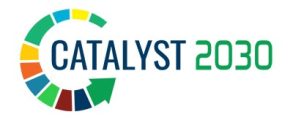AACOSE Concept Note
AACOSE Agenda
AACOSE is an initiative of the Institute for Social Transformation, Tangaza University College that started in 2017 to gather major actors of social entrepreneurship to collaborate to create an enabling environment for the growth of social entrepreneurship in Africa. AACOSE is co-organised by Tangaza University College – Institute for Social Transformation in collaboration with other partner organisations supporting social entrepreneurs.
AACOSE Concept Note
Background and Context
The world is confronted with major challenges, such as environmental crisis, growing inequality, youth unemployment, etc…that require urgent concerted efforts to reverse the situation.
Whereas the deployment of various economic models in Africa has failed to transform the concrete realities of people, social entrepreneurship has delivered tangible results in improving people’s lives.
In Africa, social entrepreneurship is effectively solving social challenges through sustainable social enterprises that create social and economic value for society. Social entrepreneurs put the people and society at the centreof their models.
Africa is undeniably the continent where social entrepreneurship is growing at an enormous rate and networks are created to bring social entrepreneurs together. Despite this positive development, there is still much to do to shape the landscape in order to accelerate social entrepreneurship for the transformation of Africa.
Many bottlenecks slow the acceleration of the growth of social enterprises. Amongst them; access to finances, absence of legal frameworks, weak collaboration, and capacity development. These bottlenecks need to be addressed.
In spite of the continued growth, social entrepreneurship is still very unpopular in many countries. Therefore, accelerating social entrepreneurship in Africa requires strengthening the existing and emerging networks supporting social entrepreneurs.
As social entrepreneurship continues to grow, there are local or national social entrepreneurship networks that have already been formed in some African countries. It is time to bring these existing networks together towards a continental network and strengthen their efforts. Therefore, some crucial gaps need to be addressed to advance social entrepreneurship in Africa. First, there is a need to strengthen the national ecosystems through multi-sectoral collaboration. Second, a Pan-African discussion of social entrepreneurship has been missing. Although social enterprises are growing in many countries, there is little effort to connect their experiences and practices.
As a response, AACOSE leverages emerging networks and other initiatives to build a network of social entrepreneurship. For social entrepreneurship to become a force and a movement for continental change, there is need to connect and build a network of networks.
AACOSE Concept Note
Rationale of the Conference
There is need for Africans to think creatively about the challenges hindering development of the continent. It is imperative for Africa to build an authentic model of development that is anchored on its value system, utu philosophy, and traditional cultural heritage.
Africa should seek to build and promote transformative business models. These models of business have a direct impact on the people.
Social enterprises remain working in silos at national and continental level. This situation is not helping in unleashing the full transformative power of social enterprises. It is imperative to find ways to connect the different social enterprises across the continent. This will create a Pan-African social entrepreneurship movement.
AACOSE Concept Note
AACOSE Conference Outcome
The conference will generate new knowledge through panel discussions and case studies. This knowledge will be compiled in a book that will enhance our understanding of social entrepreneurship practices and challenges. This will serve as a learning resource for social entrepreneurship. In addition, the conference will be able to connect various social entrepreneurship networks, which will help to amplify the impact that is shaping the content.It will create new research opportunities for academia. The lessons from the conference will provide direction for advocacy for social entrepreneurship in Africa.








